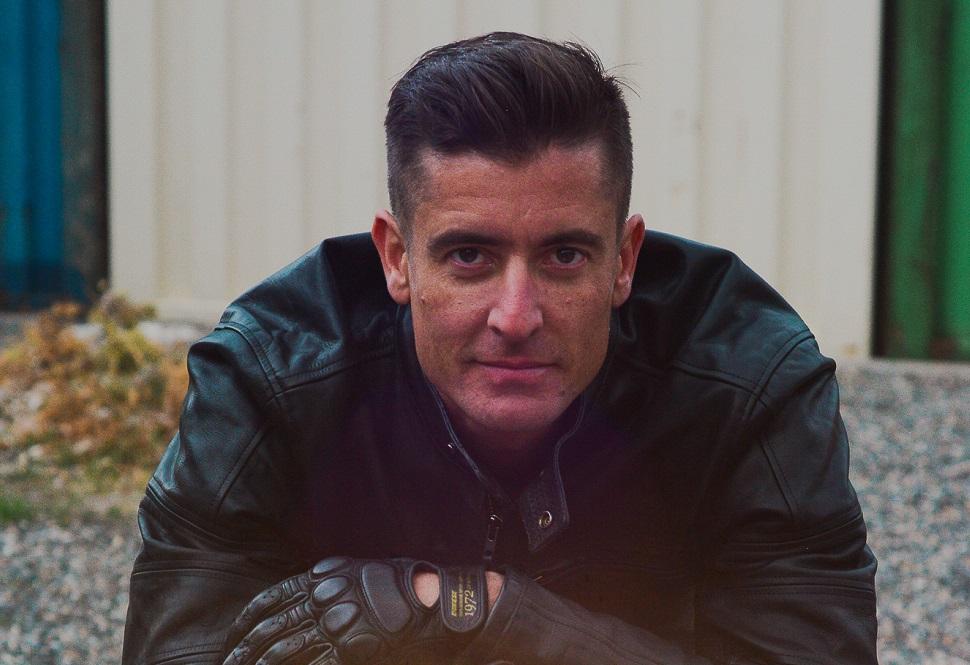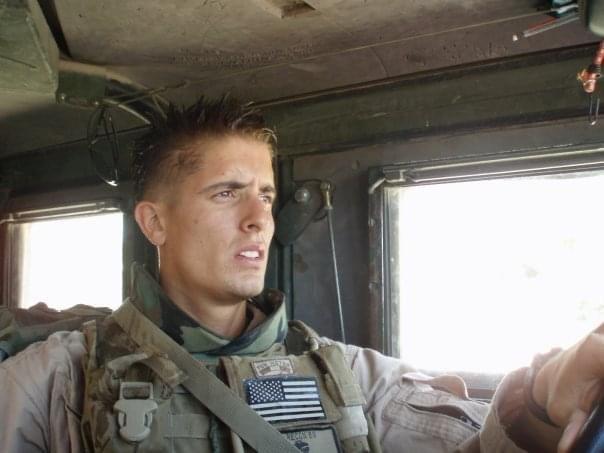
It wasn’t one incident, but a series of events in 2006 that led Scott Ostrom to his diagnosis of Post-Traumatic Stress Disorder. The Marine had been deployed to Iraq for a second time, and the cumulative effect of seeing terrible things, day after day, wore him down.
“There was a set of a few days in a row where we had been in gunfights and we lost several Marines,” said the veteran. “It was also the tempo of the operations that we had overseas. It was go, go, go, go, go.”
When he got home, he had chronic insomnia, but when he did sleep, it was filled with terrible nightmares. He said he was also quick to anger.
The lowest point was when he overdosed on prescription drugs and his friend took him to a Veterans Administration hospital in Phoenix, Arizona. He said he woke up naked at the hospital and when he tried to leave, he had a confrontation with VA police officers.
He tried talk therapy for his PTSD, but said it wasn’t very helpful. “It made me aware of what was going on with me, but there [were] no breakthroughs.”

Then he saw a Facebook ad recruiting subjects for a study using MDMA — also known as ecstasy or Molly — in combination with talk therapy to treat PTSD. Sponsored by the Multidisciplinary Association for Psychedelic Studies, was conducting treatments in 15 locations across the United States and abroad and needed subjects with treatment-resistant PTSD.
Ostrom applied and went through an extensive vetting process. He was accepted to undergo treatment in Boulder and began three MDMA-assisted therapy sessions in early 2019.
Marcela Ot’alora leads the Boulder study and was with Ostrom for his sessions. She said that when MDMA-assisted therapy works, it helps those suffering from PTSD find another part of themselves that may have taken a “backseat” amidst all their past trauma.
MDMA increases the release of oxytocin and serotonin, which are both hormones that help promote relaxation and a sense of well-being. Ot’alora said the drug also affects the region in the brain called the amygdala by deactivating the part that monitors fear so people can access challenging experiences.
The study’s initial results show promise. In the first part of phase three trials, clinicians treated 90 people and about half were assigned to placebo treatment.
Of the subjects who received MDMA-assisted therapy, 67 percent no longer met the criteria for a PTSD diagnosis at the end of the trial; 21 percent still met that criteria, but had improved significantly; and 12 percent had no response.
In the group that received the placebo, which was therapy-only, 32 percent no longer met criteria for PTSD. That is about the standard for conventional treatments. After the study, subjects in the control group were given the option of trying the MDMA-assisted therapy.
As research has increased in recent years, psychedelics have gained traction for their potential to treat mental illness and other issues like PTSD, anorexia and even drug and alcohol addiction.
Ot’alora said that while MDMA is often used as a recreational drug, research has shown it’s not addictive; She said she has not had a study participant become dependent.
At the same time, she cautions that MDMA-assisted therapy is as much about the therapy as the drug, and that a controlled setting and trained physicians are crucial to the success of the treatment.
As attention to the potential benefits of psychedelics grow, she said that the MDMA study shows not everyone finds relief.
Some people begin treatment with unrealistic expectations and don’t fully understand the psychological work necessary to make progress. “We have participants that come in having read some stories where they think that it might be an easier process than it is,” she said.
For Ostrom, the study was helpful in treating his PTSD. With the help of two therapists who guided him through the MDMA-assisted sessions, he was able to go through an “index” of experiences and memories that contributed to his struggles with PTSD.
While he still faces challenges, the benefits of those three therapy sessions in 2019 have stayed with him: He is “just enjoying life as it comes and not being so angry all the time.”
The Multidisciplinary Association for Psychedelic Studies hopes to submit the final results of the study to the FDA by the end of the year, said Ot’alora. She anticipates the drug could be approved for therapy by the end of 2023.









